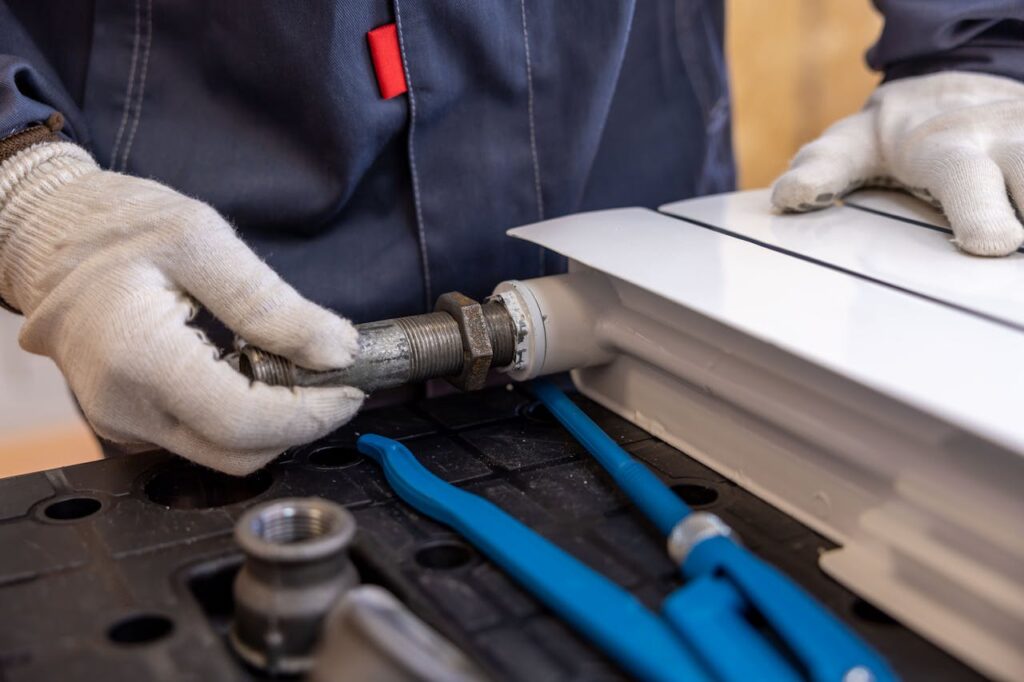Plumbing Business Acquisition
Acquisition of the plumbing business would be a strategic step for expanding market presence, increasing revenue, and utilizing an existing customer base. Carry out complete due diligence before making a decision: review revenue trends, profit margins, and outstanding liabilities of the business to evaluate its health.
It can determine future growth and, with its existing client base and service reputation, be your greatest asset. Make sure that the acquisition fits the objectives of your business-to-be-acquired, either geographically expanding, bringing aboard skilled labor, or buying invaluable equipment.
Negotiate a good purchase price, taking into consideration the business’s valuation today and potential for future growth. Don’t miss legal considerations such as licenses and contracts transfer and ascertain whether it is within industry regulation.
Why Consider Plumbing Business Acquisition for Growth
Plumbing business acquisition is a strategic way to grow faster by leveraging an already established enterprise. You don’t start from scratch when you acquire a business, as there is an existing client base, trained staff, and operational infrastructure to begin with, reducing startup hurdles.
This way, you get an immediate market presence and a possibility of geographical or service line expansion. You also inherit goodwill when you buy a good business, making it easier to build trust with new and existing clients.
Furthermore, through acquisitions, one is exposed to valuable assets, like equipment, technology, or expertise, which are typically more expensive to create separately. With the right diligence and a smooth transition process, acquiring a plumbing business can set you up for sustainable growth, revenue build-up, and strong penetration in the industry. Also Read: Dump Truck Business Plan

Key Factors to Evaluate in a Plumbing Business Acquisition
Some of the important key considerations for a successful plumbing business acquisition include:
Financial Health: The amount of revenue, profit margins, and outstanding debts ensure that the business is sound financially.
Client Base: Evaluate the size, loyalty, and diversity of the existing customer base for possible long-term value.
Reputation and Brand Value: Check the business reputation in the market, where a good brand can add to your credibility and growth.
Equipment and Assets: Check the condition and value of tools, vehicles, and technology used in the acquisition.
Skilled Workforce: Assess the experience and willingness of existing staff to stay after an acquisition save time and the cost of training.
Legal and Regulatory Compliance: Assess licenses, certifications, and compliance with local regulations for the avoidance of legal complications.
This thorough review will ensure a smooth transition and put your growth business in a good position.
How to Research the Right Opportunity for Plumbing Business Acquisition
Acquisition of a plumbing business needs to be done as part of strategic and extensive research. Begin by specifying whether your goal is market growth, revenue increase, or the addition of a skilled workforce in your business. Apply all the objectives to search for a suitable business.
Investigate local listings, industry networks, and business brokers to explore potential opportunities. Businesses should have a financial record in good standing; possess a loyal client following and be well respected by other professionals in the business or industry.
Conduct detailed due diligence to assess the business’s revenue, profit margins, existing liabilities, and operational efficiency. Evaluate its assets, including equipment, vehicles, and workforce, to ensure they align with your needs.
Study the competitive landscape and growth potential in the business’s market. In this way, you will find a structured approach that allows you to identify and acquire a plumbing business that matches your objectives and provides long-term success.
Financial Planning for Plumbing Business Acquisition
An investment in a plumbing business does not occur without financial planning. First, the company must be able to derive the total acquisition cost comprising the purchase price, plus legal fees and due diligence expenses.
One must consider loan options, investors, or personal capital and determine how the interest rate or terms of repayment may affect cash flow. For example, the cost of transition, including employee retention, equipment upgrades, or training, must be incorporated.
Develop a cash flow forecast that will detail the revenues versus expenses and operational costs to include payroll, maintenance, and marketing. The business can generate income to pay those costs and provide a return on investment.
Including contingencies in the financial plan for those unexpected expenses and slower growth periods will ensure stability as the business transitions. It helps to mitigate risks while setting up the business to be successful.
Common Mistakes to Avoid in Plumbing Business Acquisition
Common mistakes while acquiring a plumbing business must be avoided to ensure smooth and long-term success. Such mistakes include the following:
- Due Diligence: The company’s financial health, contracts, and liabilities are thoroughly checked before the acquisition to avoid surprises post-acquisition.
- Overpayment to the Business: Undervaluation of the business increases the purchase price above actual value, and this poses a threat to profitability or return on investment.
- Neglecting Customer and Employee Retention: Failure to maintain key clients or keep good employees may destabilize and slow the business.
- Underestimating Regulatory Compliance: Failure to obtain proper licenses, permits, or industry certifications may result in litigation.
- No Clear Transition Process: Failure to detail how operations, employees, and customers will be transitioned can confuse and disrupt the business flow.
Avoiding such mistakes assures an easier acquisition process as well as long-term success for you.
Negotiation Tips for a Successful Plumbing Business Acquisition Deal
Adequate preparation and strategic communication are essential for a successful plumbing business acquisition deal. It begins with doing due diligence to understand the financial health of the business, its assets, liabilities, and position in the market. That information strengthens your negotiating position.
Clarify your objectives and budget in detail to avoid the overrun of making compromising offers or overpaying. Prepare to ask searching questions where any unknown issues or risks may impact business value.
It should be reasonable and competitive. That is, it should consider cash flow, customer base, and growth potential. Negotiation in terms of payment structure, transition period, and retention of employees can ensure smooth processes.
The final thing is to keep communication open with the seller be flexible and focus on finding solutions that benefit both parties. Good negotiation and clear communication on both ends will determine the successful acquisition.
Legal Considerations in Plumbing Business Acquisition
Legal considerations are important while purchasing a plumbing business, especially to ensure smooth transition and regulation compliance. First, review the legal structure of the business, including ownership rights, contracts, pending lawsuits, or liabilities. It gives an idea of possible legal risks.
Ensure licenses, permits, and certifications for plumbing business operations are transferred in compliance with local regulatory requirements. Evaluate the employee agreements and ensure labor laws, benefits, and compensation for such during the acquisition.
The contract for the vendor, which also affects the operation of ongoing business, and agreements between the client also have to be reviewed. In any asset or stock transfer, negotiate the terms for the clarity of what one acquires.
Commission a lawyer with experience in business acquisitions to guide you through legalities, draft agreements, and ensure that the acquisition complies with all relevant laws and regulations.
FAQs
How long does it take to complete a plumbing business acquisition?
The acquisition process typically takes 3-6 months, depending on negotiations, due diligence, and legal formalities.
Can I finance a plumbing business acquisition?
Yes, financing options include bank loans, SBA loans, private investors, or seller financing.
Do I need prior experience to acquire a plumbing business?
While prior plumbing experience is helpful, strong business management skills and support from industry experts can also ensure success.
What are the key factors that affect the value of a plumbing business?
Key factors include revenue, profitability, customer base, reputation, equipment, and the overall condition of the business.
Conclusion
Acquisition of a plumbing business is the strategic expansion by leveraging on the established client base, skills of the workforce, and reputation of the business. With appropriate research, financial planning, and negotiation, you will secure a deal that matches your long-term goals.
It is important to avoid mistakes such as overpaying or failure to comply with the regulatory requirements. The whole acquisition process depends on careful due diligence, understanding how the business operates, and retaining customers smoothly. It will be able to spur substantial growth and a solid competitive position in the industry with proper planning.

